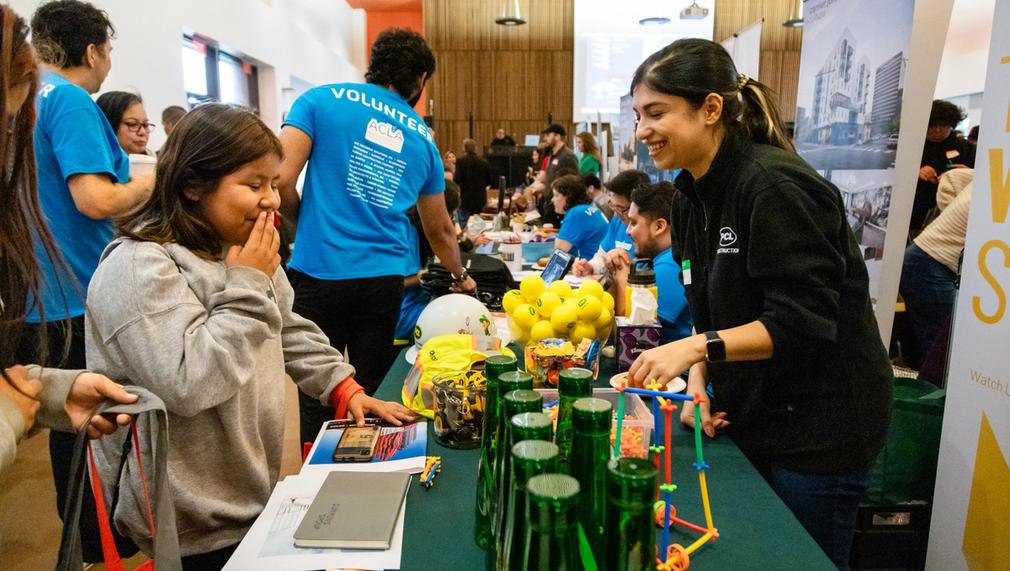Design Like a Girl LA
Design Like a Girl LA will advance ACLA’s mission to promote diversity and inclusion in the building-related fields of architecture, engineering, construction, and design/sustainability in LA. This mentoring program provides three all-day workshops to middle school girls between the ages of 11-15, focusing on the fundamentals of the design of the built environment. We seek to inspire girls from underserved communities in the West Adams neighborhood to join the ranks of people who are materially shaping LA’s future.

What is the primary issue area that your application will impact?
K-12 STEAM education
In what stage of innovation is this project, program, or initiative?
Pilot or new project, program, or initiative (testing or implementing a new idea)
What is your understanding of the issue that you are seeking to address?
The issue we are addressing is the lack of women – particularly from underserved and underrepresented communities – in architecture and related professions (currently, only 17% of U.S. licensed architects are women) in the LA region, which is facing formidable sustainability and humanist challenges amid climate change and evolving social pressures. At ACLA, we believe that Los Angeles – as well as the field of architecture – will benefit enormously from a greater diversity of perspectives and lived experiences among the people who reimagine, design, and build its public and private spaces. Indeed, dilemmas such as how to provide affordable housing, environmentally sustainable neighborhoods, and livable communities require considerable creativity, skill, and motivation. We need the perspectives and unique abilities of the next generation of women from diverse backgrounds in this region to ensure a sustainable – and resilient – future for LA
Describe the project, program, or initiative this grant will support to address the issue.
Design Like a Girl LA (DLAG) pairs students with architects to learn first-hand from those who have broken gender barriers to succeed in architecture and related professions. The program consists of three workshops for a cohort of 30-40 middle school girls, ages 11-14. Each workshop has a theme and includes a field trip, a design project with drawing and model building, and concludes with an individual presentation of their design. The first workshop of the series is Fundamentals of Architecture, focusing on tools of the architectural trade, vocabulary, and basic design concepts. The following workshops will explore different areas of the design professions selected from the following themes and with a unique focus on the West Adams neighborhood: Construction & Engineering Landscape Design Sustainability Adaptive Reuse Design for Wellbeing
Because ACLA’s Center for Communities, is located in West Adams and because this area is home to a large number of underserved students, we have chosen to focus on partnering with local middle schools serving the West Adams community for our first iteration of DLAG LA.
The DLAG mentorship program was created in 2016 by the Washington Architectural Foundation, the public outreach arm of the Wash., D.C., chapter of the American Institute of Architects (AIA). ACLA’s K-12 Committee is working with the program’s creator, Joanna Schmickel, FAIA, to learn from other AIA affiliates across the country that have adopted this program.
Describe how Los Angeles County will be different if your work is successful.
If our work is successful, we will have paved the way for dozens of girls from underrepresented communities in West Adams to get a start – before high school – in joining and diversifying the fields of architecture, construction, engineering, and sustainable design (AEC) in LA and inspire them to entertain a profession they might not have considered. The immersive experience provided by DLAG is designed to inspire, build confidence, and give a meaningful introduction to the opportunities available in these fields as well as skills students need to pursue. The program aims to inspire girls to develop STEM and arts skills in high school as preparation for college, where they can enter AEC programs. We believe that success will benefit all of the people of Los Angeles through a more diverse, stronger pool of talent among the people who envision, plan, and build the county’s buildings and communities. DLAG allows students to see themselves as future architects.
What evidence do you have that this project, program, or initiative is or will be successful, and how will you define and measure success?
Among the tools provided by the Washington Architectural Foundation DLAG founding members is a survey template, which we will adapt for our program. To measure success, we will survey teachers and students at the end of each workshop. The anonymous data we collect will be analyzed in several phases: First, the surveys from each workshop will be reviewed and conclusions drawn. Then surveys from the entire cohort (4 workshops) will be compared. This will be repeated for each cohort. Finally, all of the survey results will be analyzed and a grant report prepared. Broadly, success will be indicated if a majority of participants report feeling: 1. They gained important knowledge in an enjoyable way, including about West Adams 2. Empowered to pursue studies/a career in an architecture-related field
3. Inspired to consider an architecture-related career.
Approximately how many people will be impacted by this project, program, or initiative?
Direct Impact: 20.0
Indirect Impact: 80.0